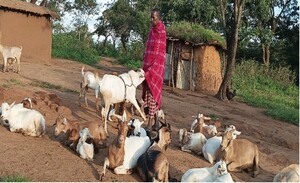
Participatory rangeland management: A vehicle for pastoralist women’s empowerment in Ethiopia
Abstract
Pastoralist tenure systems are highly complex. Where customary institutions are functioning well, pastoralist women access and use resources as a member of a pastoralist group. Although policy and legislation call for more equity across societies, providing individual titles to women is not necessarily the answer. Strengthening women’s rights within the collective society while also supporting women’s capacities and abilities to participate meaningfully in decision-making processes and hold leadership positions will support more sustainable gender equality outcomes. Participatory rangeland management (PRM) is an approach developed in Ethiopia in 2010 that was then piloted by non-governmental organisations in several parts of the country in a bid to improve the security of tenure and good governance of rangelands, more inclusive participation of pastoralists in decisions pertaining to their lands and improve rangeland productivity. While not an explicit aim, it also sought women’s empowerment as part of the participatory process. A review of PRM implementation in Oromia and Afar regions, Ethiopia, showed that in the majority of cases, women participated equally with men in the PRM process. Women’s and men’s opinions on the involvement and satisfaction of PRM implementation activities were compared favourably. Overall, community members believed that PRM has improved women’s roles in rangeland management leadership and decision-making processes and their access to rangeland resources, thereby encouraging a transformative process of improving gender equality and women’s empowerment in pastoralist societies. This article considers the implications of these results for pastoral women and to what degree they have contributed to their empowerment. A conceptualised women’s empowerment framework is used for the analysis.
Citation
Flintan, F.E. and Eba, B. 2023. Participatory rangeland management: A vehicle for pastoralist women's empowerment in Ethiopia. Pastoralism 13(1)







